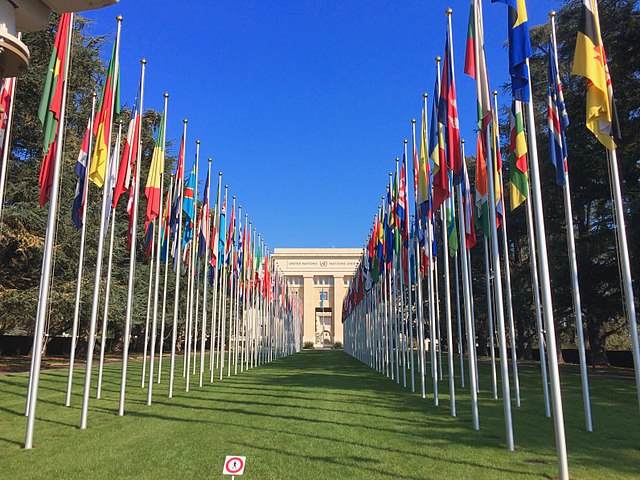Denmark failed to take effective measures against racist hate speech by discontinuing its investigation about an art exhibition showing racist hate images, the UN Committee on the Elimination of Racial Discrimination (CERD) has found. The Committee issued its decision after reviewing a petition filed by Momodou Jallow, former spokesperson for the National Association of Afro-Swedes, and national coordinator for the European Network Against Racism in Sweden.
“It does not suffice merely to declare acts of racial discrimination punishable on paper. Criminal laws and other legal provisions prohibiting racial discrimination, including racist hate speech, must also be effectively implemented,” said Committee member Mehrdad Payandeh.

Creative Commons Zero, Public Domain Dedication
Exhibition in the parliament building
The petition referred to an art exhibition sponsored by the Danish People’s Party held in the Danish Parliament building as well as in a private art gallery in Copenhagen in 2014. The collection included an image of Jallow and two other black persons hanging from a bridge, with the caption: “hang on, afrofobians”, and another image of Jallow depicted as a runaway slave from his master along with the text: “our negro slave has run away”, as well as a picture of two Roma community leaders with the words: “Gypsy crimes are something good.”
The creator of these pictures had been convicted in Sweden of defamation and inciting hatred against an ethnic group. In Copenhagen, the images were exhibited with an explanatory text based on the interviews given by the artist explaining the pictures’ background and purposes, as well as a reference to the conviction by the Swedish Courts concerning each of them.

eimoberg from Changwon, South Korea
Creative Commons Attribution 2.0
Jallow filed a complaint against the artist and the organisers of the exhibition before the Danish authorities, alleging racial discrimination. The State Prosecutor of Copenhagen initiated an investigation but decided to discontinue the proceedings in light of domestic legislation and article 10 of the European Convention of Human Rights on freedom of expression.
After his appeal was rejected in Denmark, Jallow brought his case to the Committee in 2018, stating that the decision to stop the investigation constituted a violation of the provisions on the ban of racial superiority, hatred and incitement to racial discrimination under the Convention on the Elimination of All Forms of Racial Discrimination.
Racist hate speech
The Committee considered that the pictures in the petition constituted expressions of racist hate speech as these images amounted to the dissemination of ideas based on racial or ethnic superiority or hatred, incitement to hatred, contempt or discrimination.
The Committee highlighted the importance of striking a balance between the right to freedom of expression and the obligations to combat racist hate speech. In this case, the depictions and words express the idea of racial superiority. “Some of the pictures displayed specific anti-discrimination activists, with messages to humiliate them and tarnish their dignity, and that can incite racial hatred and violence,” Payandeh said.
“By depicting black people and members of the Roma community in a degrading manner, the pictures affect not only the rights of the portrayed individuals, but also those of other group members under the Convention”, he added.
The Committee found that the Danish authorities failed to give an appropriate and proportional response to combat this incident of racial discrimination. Therefore, it requested Denmark to apologise to the petitioner and grant him full reparation.
Background
The Committee on the Elimination of Racial Discrimination monitors States parties’ adherence to the Convention on the Elimination of All Forms of Racial Discrimination, which, to date has 182 States parties. The Committee is made up of 18 members who are independent human rights experts drawn from from around the world, who serve in their personal capacity and not as representatives of States parties.






